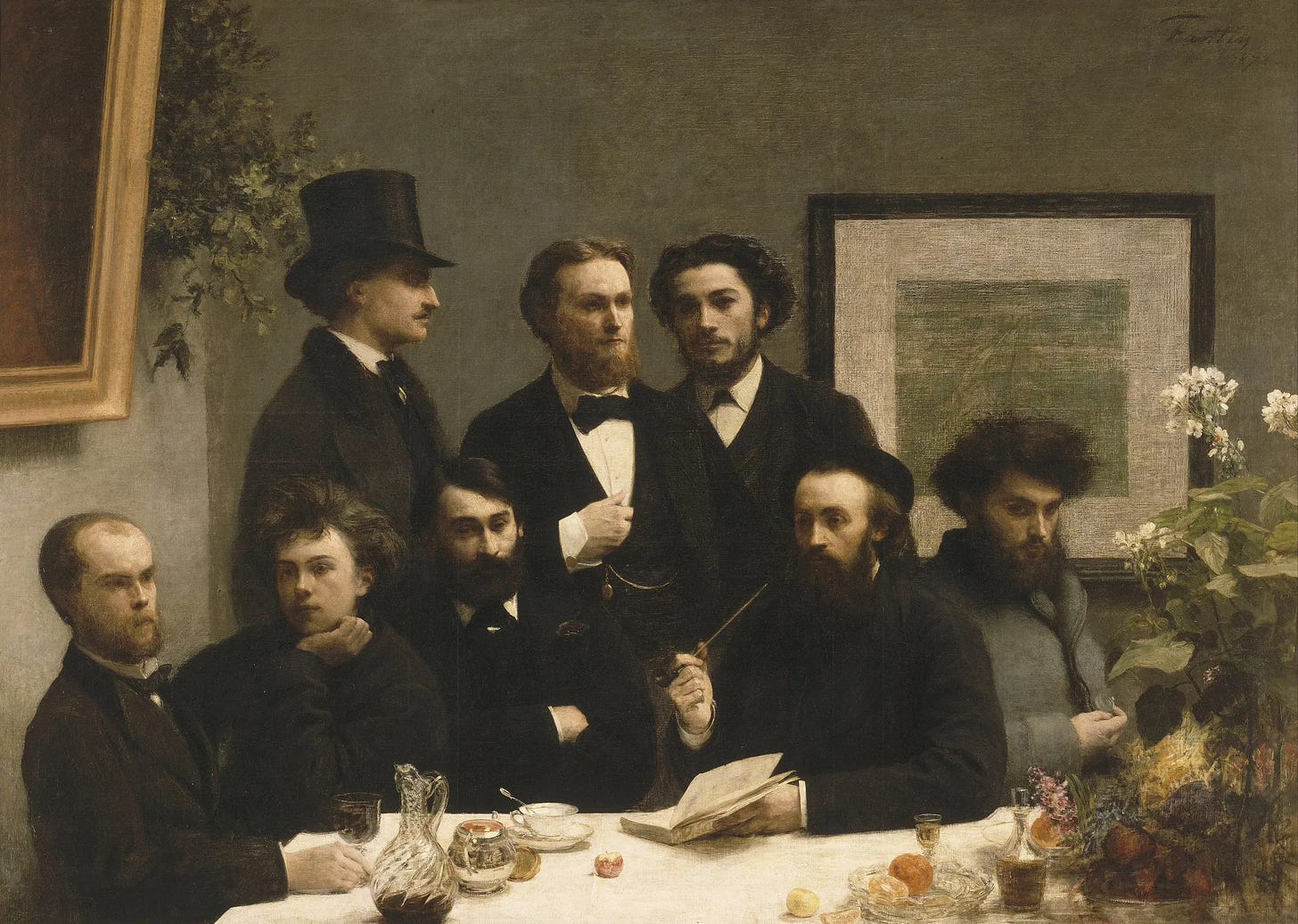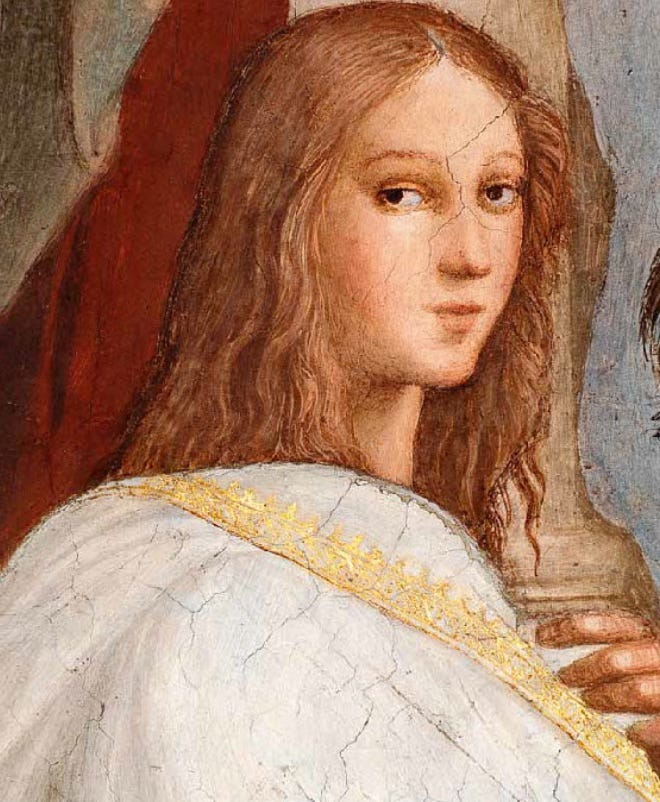How Did We Get So Lost?
A Renaissance prodigy and a French 'poete maudit', born four centuries apart, provide the answer

As we experience the United States doom-spiraling on its regressive path toward Fascism, as we witness the humiliating decimation — by our Supreme Court, no less! — of any vestige of a rule of law or impartial justice in this country, I keep reflecting on two European prodigies who lived four hundred years apart: The Italian Renaissance wunderkind Giovanni Pico della Mirandola (1463–94) and the French poet maudit Artur Rimbaud (1854 - 1891). Let me try to explain how this all connects.
Giovanni Pico della Mirandola
Pico was born into an aristocratic family and recognized as highly precocious, trained in Latin and Greek from an early age. At thirteen years old, he was studying philosophy at the University of Ferrara, where he befriended the Dominican friar Girolamo Savaranola, among other luminaries. One of his mentors, a few years later, was Rabbi Johannan Alemanno, who practiced cabala and believed the study and practice of magic was the pinnacle of intellectual achievement. At that time, ancient Hermetic texts were being unearthed and translated for the first time, including the Corpus Hermeticum. There was a general fascination with pagan magic and the Mysteries, reflected in the paintings of Botticelli and others.
At 23, Pico had the bravado to attempt to restore what he believed was Christianity’s lost initiatory and magical dimensions. In his 900 Theses, he attempted to integrate kabbalah, Hermetic texts, and pagan Mystery traditions into Christianity. He planned an open debate of his syncretic vision at the Vatican, intending to show how, beneath the surface disagreements of religious and philosophical systems, he had found a universal logic and perennial wisdom. Sadly, the Vatican never allowed Pico to hold his debate.
Wouter Hanegraff writes in Western Esotericism: A Guide for the Perplexed:
Pico’s ambition had been to demonstrate that all the conflicts between the different philosophical and theological schools, including the systems of Platonism and Aristotelianism, could be resolved in a grand harmony of universal wisdom and truth. His project culminated in the sensational claim that all the fundamental truths of Christianity were already contained not only in the various traditions of the pagan nations but, most surprisingly and controversially, in the secret tradition of kabbalah that God had revealed to Moses at Mount Sinai. As a result, the true Christian tradition would rule supreme: not only would the pagan sages be seen as bowing down symbolically before the truth of the gospel, but the Jews would have to convert quite literally, as it dawned on them that Jesus had been the true secret of their own ancient traditions all along.
Pope Innocent VIII condemned Giovanni’s work as “in part heretical, in part the flower of heresy,” declaring that his theses “reproduce the errors of pagan philosophers” and “under the pretext of ‘natural philosophy,’ favor arts that are enemies to the Catholic faith.” The Pope particularly condemned those theses “cherishing the deceits of the Jews.” They banned his book and exiled him. It thought that the Medicis eventually had him poisoned him.
Pico’s 900 Theses was not the only failed attempt to bring an initiatory dimension of magic, cabala, and other esoteric practices such as numerology and alchemy back into mainstream Christianity. Two centuries later, another group of intellectuals also recognized this need. In The Rosicrucian Enlightenment, occult historian Francis Yates showed how the early-seventeenth-century Rosicrucian manifestos (the Fama, Confessio, and Chymical Wedding of Christian Rosenkreuz) belonged to a serious attempt by a secret coterie of scholars to spark an esoteric renewal.
The Rosicrucian movement fused Protestant ideals with Hermetic and Cabalist tradition, including Paracelsus’ principles of alchemy. It coalesced around the Palatinate court of Frederick V and Elizabeth Stuart in Heidelberg and Prague (1612 - 1620). The manifestoes were thought to be the brainchild of the Tübingen circle, a group of humanist scholars and utopian reformers. Both noble and religious authorities eventually turned against the Rosicrucians, forcing the movement underground.
In other words, a number of scholars from both the early and late Renaissance realized, independently, that Christianity had been turned into an empty system of faith and forced indoctrination. Their religion was like a shell lacking any esoteric or initiatory core. Initiations — such as the Eleusinian Mysteries — were part of the ancient world. People who participated in those pagan rituals were seen as holding an equal status as initiates, despite any differences in wealth or status. But a religion that prioritized blind belief and faith, while penalizing direct visionary experience and personal revelation, reinforced social hierarchies that benefited the ruling elite.
900 Theses is a struggle to read from our modern perspective, but Pico’s Oration on the Dignity of Man remains accessible and quite delightful. In this essay, he articulates a radical theology of human freedom and redemptive potential. Unlike other creatures whose natures are fixed at birth,
Keep reading with a 7-day free trial
Subscribe to Liminal News With Daniel Pinchbeck to keep reading this post and get 7 days of free access to the full post archives.



